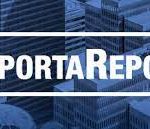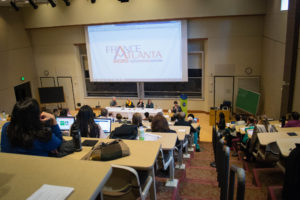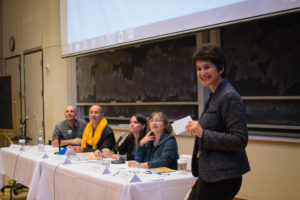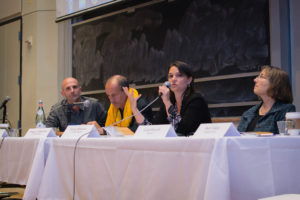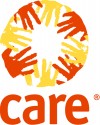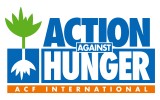Climate change and humanitarian aid : local and global stakes in COP21
France-Atlanta 2015 hosted a humanitarian roundtable in partnership with Emory University on climate change and its impacts on vulnerable populations on October 28, 2015.

The event attracted participants from numerous universities in the region as well as state and federal agencies who contributed to the two sessions by asking stimulating and pertinent questions.
The first session placed particular focus on community-based adaptation (CBA) and risk reduction. Placing the issue in context, panelists from CARE, Action Against Hunger, Groupe U.R.D., and Emory University’s Master of Development Practice discussed how climate change impacts vulnerable communities around the world before sharing about how humanitarian assistance agencies around the world are addressing these impacts of climate change in poor communities. Offering case studies and risk analyses, panellists drew out key lessons and principles. They also discussed the challenges and limitations of CBA and risk management approaches that their respective organization has witnessed.
With COP21 approaching, the second session addressed Advocacy and policy : from COP21 and beyond and included participation from the Mission for Science and Technology of the Embassy of France to the United States. Following an overview of COP21, France’s role, and why COP21 was relevant to the discussion from a U.S. policy perspective, NGO representatives shared about why negotiation process matters to humanitarian assistance organizations and the various advocacy positions by the NGO community (mitigation, human rights, finance– loss and damage). Finally, the discussion circled back to what could be expected from leaders coming out of COP21 and how citizens could get involved.
This panel included representatives from CARE’s Poverty, Environment, and Climate Change Network (PECCN), Action Contre la Faim (Action Against Hunger), Groupe U.R.D., Climate @ Emory, Emory University’s Laney Graduate School and the Mission for Science and Technology of the Embassy of France to the United States.
WHEN: October 28, 2015 | 3:30 p.m. – 6:45 p.m.
WHERE: Emory University Mathematics and Sciences Center – Room E208 (400 Dowman Drive, Atlanta, GA 30332)
This France-Atlanta event is presented with the generous support of our partners:






